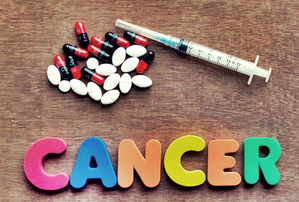New Delhi, 17 February (IANS). The World Health Organization (WHO) recently issued a warning regarding excessive intake of alcohol -rich beverages. Regarding this, some experts in India also believe that excessive consumption of alcohol increases the risk of cancer.
The WHO considers alcohol a toxic, psychological and addiction substance, which was classified by the International Agency for Research on Cancer (IARC) decades ago as Group 1 carcinogen. This means that this substance is one of the greatest hazards of cancer causing, such as asbestos, radiation and tobacco.
Dr. Puneet Garg, a vascular internal radiologist and endovascular surgeon at Safdarjung Hospital in New Delhi, said that alcohol consumption increases the risk of cancer and can cause more than 20 types of cancer. Common cancers of alcohol include cancer of the mouth, throat, food pipe, abdomen, colon, rectal and pancreas. In addition, alcohol also causes breast cancer in women and prostate cancer in men.
Dr. Taraprasad Tripathi, Assistant Professor at the All India Institute of Medical Sciences in Bhubaneswar, Odisha, said that the increasing consumption of alcohol in India has increased the risk of cancer. Alcohol turns into acetaldehyde (a toxic compound that can damage DNA and protein) during metabolism (metabolism). It can damage DNA and protein, causing mutation and starts developing cancer. In addition, alcohol disrupts the body’s ability to absorb essential nutrients such as folate, vitamins A, C, D and E, important to maintain healthy cells and prevent cancer.
Alcohol is considered a famous carcinogen, which has a major impact on global health. According to WHO, about 4 percent of cancer cases worldwide are caused by alcohol intake. In a recent study published in Lancet magazine, it has been estimated that about 62,100 new cancer cases in India were related to alcohol intake. In addition, American Surgeon General Vivek Murthy has recommended a warning of cancer on alcoholic beverages to prevent breast, liver and colon cancer. This can help consumers to take decisions regarding its intake and increase awareness about health risks from alcohol.
Experts say that regular intake of alcohol also weakens the body’s immune system, which reduces the identity of cancer cells and their ability to destroy. Alcohol intake is associated with many types of cancer, each of which may be different. Constant blisters in the mouth, bleeding without any reason, lumps in the cheeks or thickening, difficulty swallowing or sore throat that is not good, can be a sign of cancer of the mouth and throat. If a person has esophagial cancer, he may have problems like swallowing difficulty, chest discomfort, weight loss, chronic cough or vowel. Lever cancer may cause problems such as stomach swelling, jaundice (yellowing of skin and eyes), weight loss, loss of appetite and fatigue.
Symptoms of breast cancer may include lumps in the breast or armpit, changes in breast size, pits or nipples in the skin. Experts said that it is extremely important to quickly detect cancer as timely treatment can improve its results. With advanced treatments, the chances of treatment and avoiding can improve when early identified. But if the cancer detection is late and ignored it is ignored, it can spread to other parts of the body, called metastasis. It becomes very difficult to remove these metastasis from surgery and chemotherapy.
Dr. Garg said that in advanced stages, cancer cells also weaken the body’s immune system and damage vital organs such as brain, liver, heart, kidneys and lungs. Therefore, experts have emphasized the need to pay attention to medical attention for regular check -up and high -risk individuals. Tripathi said that reducing alcohol intake can reduce the risk of cancer development. WHO says that alcohol intake is not safe in any amount, as alcohol intake also increases the risk of cancer.
-IANS
PSM/GKT









